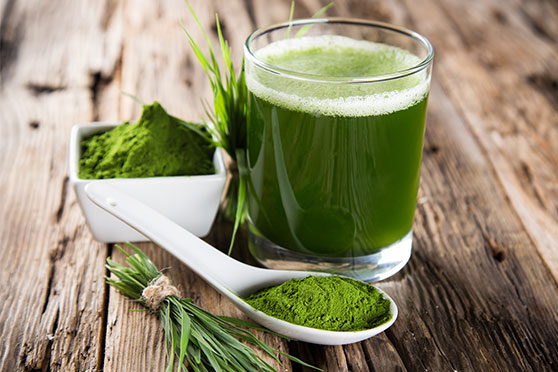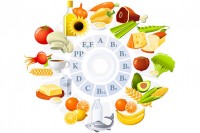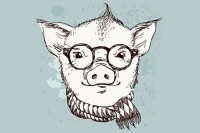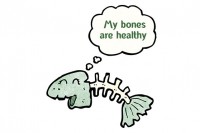Anaemia was yet another of the health problems that afflicted my mother whilst I was growing up. Her anaemia was most probably in part due to the haemorrhoids she suffered with, as the severity of these caused a regular amount of blood loss. Controlling this through diet was something she had to pay attention to in regard to herself, but which also she liked to extend to the rest of the family
Having rummaged through my memory closet, I recall that when I was growing up, if anyone showed symptoms of unexplained tiredness, anaemia was proffered as the cause. The solution was a dose of iron in some way shape or form, either from animal liver, beetroot juice, blackstrap molasses, or in my mums case, all three. She endeavoured to share these with me, and the only one I had any fondness for was the sweet molasses.
There were of course iron supplements and these were certainly still being doled out as standard to pregnant women, who often can register as anaemic, until well into the 1990’s – perhaps longer. Personally with my first pregnancy I found this caused constipation and so I never took it again. My memory of the approach 3 -4 decades ago is happily correct. When reading up on this, I found that Dr Andrew Weil says virtually the same thing. “It’s vital to recognize that nutritional advice on iron has changed. As recently as the 1970s, the conventional wisdom was that iron is a tonic, and should be taken by virtually everyone to counteract fatigue and “tired blood.”
The Danger of Too Much Iron
Nowadays, it is more widely recognised that there are other factors that can contribute to unusual tiredness, for example, ones that are related to stress and the adrenal glands. Tiredness can of course still be related to anaemia, but lack of iron is not necessarily the reason.
Although taking iron is still often the standard recommend method of treating anaemia, this is not without danger as Dr Weil points out:
“Iron is a strong oxidant and can potentially promote the development of inflammatory conditions, including heart disease. Iron is also one of the few minerals that the body cannot readily eliminate, and overconsumption can make it accumulate to toxic levels.”
Dr Joseph Mercola agrees likewise, and similarly cautions against having too much iron.
“It’s important to find out if your levels are high because your body has a limited capacity to excrete iron, which means it can easily build up in organs like your liver, heart and pancreas. This is dangerous because iron is a potent oxidizer and can damage your body tissues contributing to serious health issues.”
If you have your blood tested for the Serum ferritin level, you need to be aware that the ideal range is between 40-60 ng/ml.
Taking too much iron is dangerous! It is an oxidiser and oxidation is bad, it causes the cells death and this is why a healthy diet includes lots of ANTI oxidants.
Natural Supplements for Anaemia
Anyone with anaemia is lacking in red blood cells and therefore lacking enough oxygen being carried around the body. So it would make sense to build up the blood in such a way as to increase the oxygen content of the cells. Another factor to consider as part of or even separate from anemia, is a B12 deficiency, this can often be overlooked by conventional medicine.
Any food that is high in chlorophyll is going to be beneficial. This is the green component of any plant, and on a molecular level is virtually identical to human heomoglobin. Heomoglobin has a core of iron and chlorophyll has a core of magnesium. Green foods by the very nature of being green, are high in chlorophyll, but some super charged green foods include wheat grass, and micro algea (spirulina, chlorella). These can be taken separately or combined in a green powder.
In his book “Aggressive Health”, Mike Nash reports on how Dr Bernard Jenson used wheat grass juice to treat low serum iron counts…”he doubled patient’s red blood cell count in days, using wheat grass juice and chlorophyll.”
It certainly makes far more sense to look to the oxygen enriching qualities of green plants to improve blood, than consuming the liver of a dead animal. The liver is the organ that purifies toxins, and animals live in a toxic world as much as we do, and are fed gross feed mixes. It seems to me that an animal’s liver has less health giving properties, than an organically grown plant food.
E3 live AFA is the king of health giving green foods, so naturally it is one of the best supplements for anaemia. This comes in liquid or dried format. The liquid is the ultimate way to ingest this, but you need to reside in a country that delivers it. Otherwise, the dried powder is the answer.
If this is out of your price range, then look at taking a mix of spirulina and wheat grass, by combining both, if your blood deficiencies are caused by poor absorption, this will be aided by the micro algae.
Paul Pitchford author of the mammoth health book “Healing with Whole Foods: Asian Traditions and Modern Nutrition,” has this to say on the wonder of spirulina:
“ A third of an ounce (10 g) of spirulina powder is enough to cover the daily need for vitamin B12 five times over, four times that for vitamin A, 83 percent of the daily requirement for iron, 30 percent of vitamin B2, and 25 percent of vitamin B1. Spirulina is particularly recommended for fatigue, anemia, eyesight problems, menstrual problems, and skin disorders. In addition, it helps strengthen the immune system and facilitates the elimination of toxins that have collected inside the body.“
Consuming greens because you have anaemia will of course have a total body effect, bringing vibrancy to all your cells not just the red blood ones. This is the beauty of natural healing with foods.





Leave A Comment